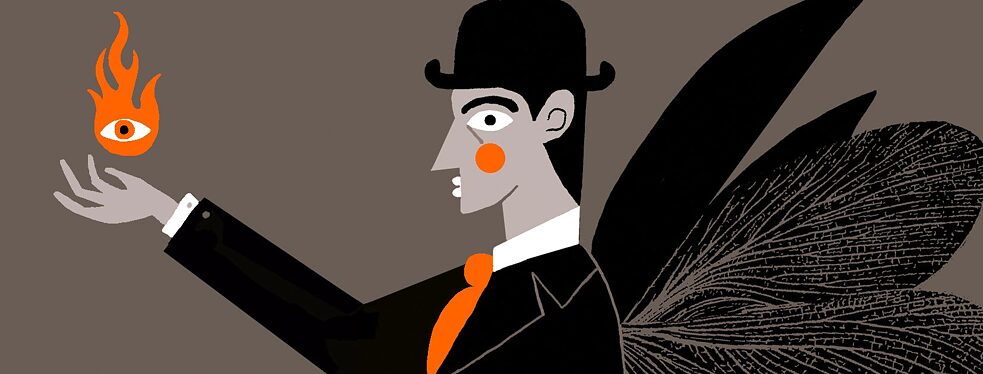Anniversary year
Kafka today

Even today, 100 years after his death, Franz Kafka's impact remains undiminished. Goethe-Instituts in 36 countries are celebrating the Kafka anniversary with a wide range of events – from theatre and music to virtual spheres.
Franz Kafka’s texts have long been a part of the canon of world literature. Stories like “The Metamorphosis” and novel fragments such as “The Trial” are familiar to almost anyone who loves literature, and new target audiences on social networks also find in the author a figure with whom to identify. Kafka, who died on 3 June 1924 at the age of forty, is still considered one of the most important German writers of modern times. Whether it’s on theatre stages or in digital spaces – Kafka fans can expect a comprehensive programme in 2024, organised by 45 Goethe-Instituts in 36 countries.
Including, of course, in Prague, Kafka's home town: the video game “Playing Kafka” has been developed there by the game studio Charles Games, allowing school students to immerse themselves in a virtual world based on his novels and familiarise themselves with it in a creative way. The spatial installation “VRwandlung” also demonstrates the many ways in which Kafka’s stories can be interpreted. In Mexico City, Brussels, Prague and other cities, it uses virtual reality to transport visitors to the room in which Gregor Samsa wakes up one day in the body of a beetle in “The Metamorphosis”.
But it is not only digital worlds in which Kafka’s works are finding new expression. On stages and in exhibitions: the Kafka Year is clearly showing how literature can merge with other art forms. Both theatre adaptations and the poster exhibition “Komplett Kafka”, which will be presenting Nicolas Mahler’s comic drawings at several Goethe locations, including Addis Ababa and Lisbon, are part of the programme. Meanwhile, the “Kafka Band” is performing musical interpretations at the Prague Book Fair, which is welcoming German-language literature as its special guest. There will also be readings, workshops, conferences and even a Twenties party to mark the end of the anniversary year in Paris.
The Goethe-Institut sees the fact that the literary works of one person still resonate and find an appreciative audience across countries and art forms 100 years after their death as proof of the power of literature. That’s why this year, in addition to the worldwide programme of events, it is also focusing on Franz Kafka as a theme for its online magazine “Zeitgeister”. 30 contributions, including one by Kafka biographer Reiner Stach, shed light on the writer from various perspectives, portraying him as a great swimmer, a cinema fan and a lover, while also highlighting the influence of his works on both Indian and Latin American literature.